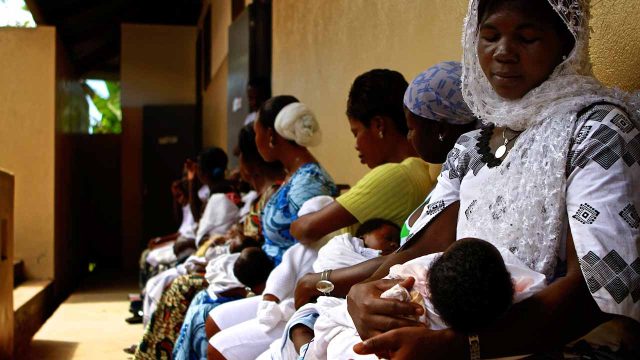Stakeholders in Lagos have emphasised the need to promote respectful maternal care as part of efforts to strengthen health services, as well as address other barriers that prevent women from seeking skilled delivery services in the state.
The call was made during the Iyaloju Initiative Participatory Forum, held against the backdrop of successes recorded by the Maternal and Reproductive Health Collective (MRHC) through this Initiative, which has so far trained 431 skilled birth attendants in emergency obstetric care to promote safe delivery practices and 2,040 primary healthcare workers in respectful maternal care.
At the forum, stakeholders, including community leaders, local government health officials, and representatives from the Lagos State Ministry of Health, reviewed the progress made under the programme and discussed strategies to further improve maternal health services across the state.
Speaking at the forum, the Chief Operating Officer of MRHC, Fumi Owosho, explained that the training was part of broader efforts to encourage more women to seek skilled care during delivery. According to her, many pregnant women in Nigeria still encounter challenges such as financial barriers, sociocultural beliefs, preference for traditional birth attendants, and the poor attitude of some health workers.
Owosho stated that the Iyaloju Initiative, launched in 2023, was designed to drive demand for maternal care by conducting community outreach programs across 18 local governments in Lagos State. The outreaches targeted women of reproductive age, grandmothers, mothers-in-law, and men, educating them on the importance of skilled delivery.
She noted that while the Iyaloju Initiative focused on mobilising women to use healthcare facilities, another project; MAMA-based intervention was developed to address financial barriers. She said the MAMA-based project identified vulnerable women in low-income communities, covered their registration fees, antenatal screening, and in some cases, ultrasound scans. The programme also provided follow-up support throughout pregnancy and up to one year after delivery.
“From the first cohort of about 8,000 pregnant women enrolled in the MAMA-based intervention, 99.9 per cent survived childbirth, 80 per cent delivered at healthcare facilities, and 60 per cent attended at least four antenatal sessions,” Owosho said.
Medical Officer of Health at Iba Local Council Development Area, Dr. Omowunmi Oreagba-Ajai, affirmed that the initiative had improved maternal health outcomes in her area because the uptake increased at their primary healthcare centre, which resulted in reduced maternal mortality. She added that the Iyaloju programme has also enhanced staff capacity through training in obstetric emergency care, patient management, and communication.
Also speaking, the Head of the Research Unit at the Lagos State Ministry of Health, Dr. Faith Oniyire, noted that the achievements recorded under the Iyaloju Initiative and MAMA-based programme align with Lagos State’s focus on reducing maternal mortality; and as such, the state government, following these successes so far, will work towards integrating MRHC’s efforts into its Sector-Wide Approach (SWAP), a mechanism designed to strengthen coordination in the health sector.







